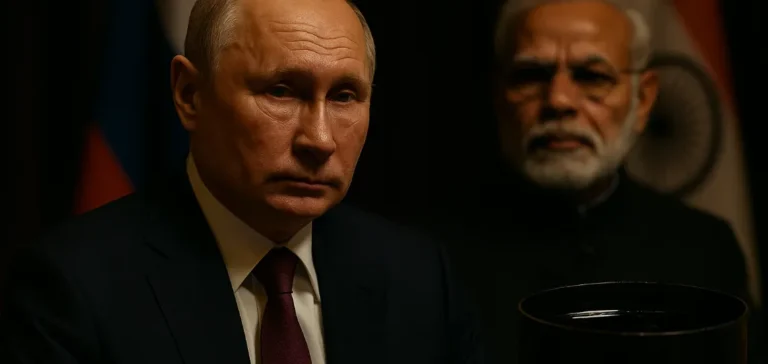Shipments of oil and petroleum products from Russia to India rose by about 15% in the first half of 2025, according to Russian Deputy Energy Minister Roman Marshavin. This growth confirms the continuation of an active energy partnership between the two countries, against the backdrop of mounting tensions with Western markets.
Russian oil gains ground in Asia
Speaking at the Eastern Economic Forum, Roman Marshavin said that the energy sector was directly contributing to the goal set by Moscow and New Delhi to boost bilateral trade. Since 2022, Indian imports of Russian oil have surged, driven by discounted pricing and Russia’s reorientation of supplies toward Asia.
Russian officials estimate that deliveries have increased more than twentyfold over the past three years. This development comes as European buyers have reduced their imports of Russian hydrocarbons due to sanctions imposed since the start of the conflict in Ukraine.
US pressure on Indian purchases
On August 6, the United States imposed an additional 25% tariff on certain Indian products, raising the total duties on some exports to the US market to 50%. This measure followed India’s continued purchases of Russian oil, which Washington views as indirect economic support for Moscow.
The Indian Ministry of Foreign Affairs rejected these criticisms, calling the accusations unfounded and pointing out that several Western countries continue to maintain trade relations with Russia. India stated it was acting in line with its economic and energy interests, without violating international norms.
A forum under geopolitical tensions
The Eastern Economic Forum, held in Vladivostok from September 3 to 6, brings together more than 4,500 participants from over 70 countries. Energy cooperation is one of the central themes discussed, amid geopolitical shifts and rising trade frictions between major powers.






















